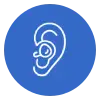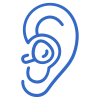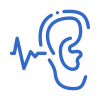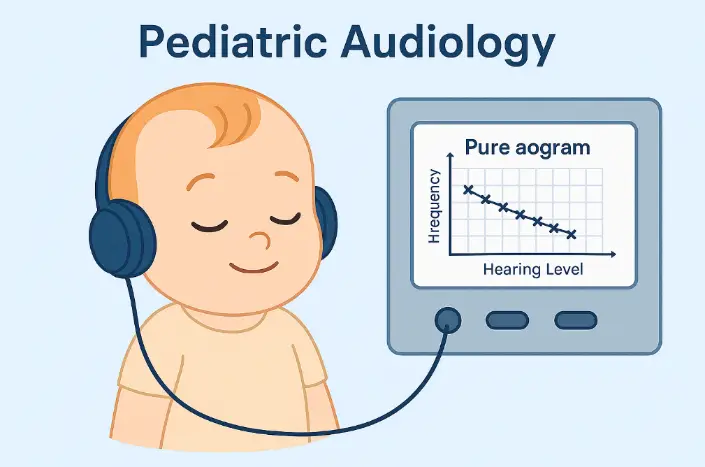Have you noticed your child isn’t responding to sounds or developing speech as expected? Pediatric Audiology at Denoc offers early detection and tailored support for children’s hearing health.
What is Pediatric Audiology?
Pediatric Audiology is a specialized branch of audiology focused on the hearing health of infants, toddlers, children, and adolescents. At Denoc Hearing, our pediatric audiologists are trained to assess and manage hearing issues in children of all developmental stages using child-friendly methods and evidence-based approaches.
The goal is early identification and intervention of hearing loss to ensure proper speech, language, cognitive, and social development.
Importance of Early Detection in Children
Early hearing loss in children can go unnoticed but may significantly delay speech and language development. According to global health recommendations:

All newborns should undergo hearing screening by 1 month of age

Diagnostic evaluation completed by 3 months

Early intervention started by 6 months
“Denoc ensures these timelines are met through specialized pediatric testing and follow-up services.”
Pediatric Hearing Assessments Offered at Denoc
Our clinical procedures are tailored to suit the age, developmental level, and cooperation of each child.

Newborn and Infant Hearing Screening
- OAE (Otoacoustic Emissions): Quick, non-invasive test to check cochlear (inner ear) function.
- AABR (Automated Auditory Brainstem Response): Measures auditory nerve responses to sound; often used before hospital discharge.

Diagnostic Tests for Infants and Young Children
- Behavioral Observation Audiometry (BOA): Observes baby’s physical reactions to sound (birth to 6 months).
- Visual Reinforcement Audiometry (VRA): Conditions toddlers to turn toward sounds paired with visual rewards (6 months to 2.5 years).
- Conditioned Play Audiometry (CPA): Children perform play tasks in response to sound (2.5 to 5 years).

Electrophysiological Tests
- BERA/ABR (Brainstem Evoked Response Audiometry): Evaluates hearing nerve pathways and brainstem response, especially for non-verbal children.
- Impedance Audiometry: Checks middle ear status, helpful for detecting infections or fluid.
Why Choose Denoc for BTE/RIE Hearing Aids?
Child-Friendly Environment
Specialized Pediatric Audiologists
Parental Guidance & Counseling
Advanced Equipment
Early Intervention Services
Ideal For
- Children, adults, and elderly individuals
- Mild to profound hearing loss
- Those who need robust and easy-to-handle devices
- Individuals with moisture issues in the ear canal
- Patients seeking wireless or Bluetooth-enabled hearing aids
What Happens After Diagnosis?
If a hearing concern is detected:
- We offer customized hearing solutions, including pediatric hearing aids
- We coordinate with speech-language pathologists for early intervention
- We monitor your child’s progress through regular follow-ups

Visual Reference: Pediatric Hearing Test Methods

OAE – Automated cochlear response

ABR – Brainstem auditory response

VRA – Visual reinforcement with toys

CPA – Game-based hearing test

Tympanometry – Middle ear pressure test
Frequently Asked Questions (FAQs)
Lack of startle to loud sounds, no babbling by 6 months, or delayed speech development can be warning signs.
Not always. Some cases (like ear infections) are temporary; others may require long-term management with hearing aids or cochlear implants.
Yes. We use objective tests like ABR and OAE that don’t require active responses from the child.


